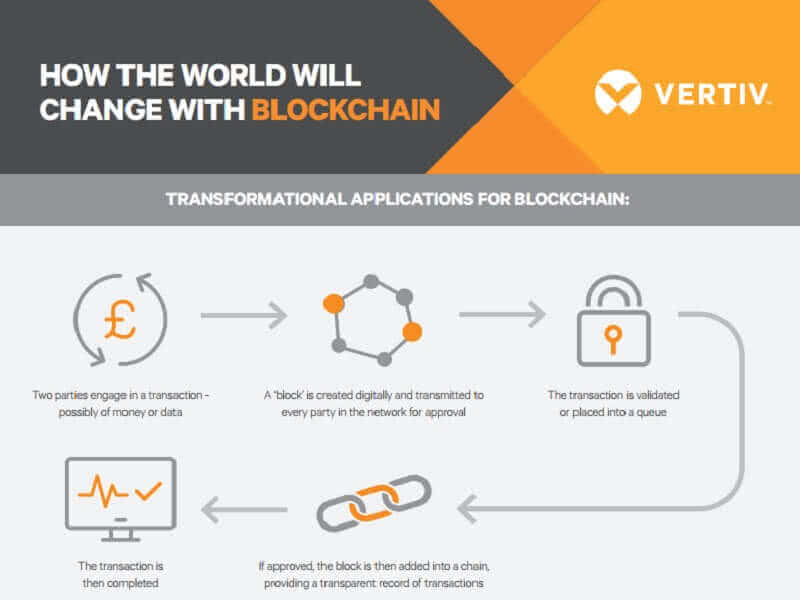The term ‘disruptive’ is shockingly abused. Not so when it comes to blockchain.
Many people are not familiar with blockchain, and yet it’s set to become the next big thing, so we’re told by Gartner. In fact it seems the technology is about to change the world in ways most of us have never considered. This blog identifies the four most disruptive things that blockchain will do for us. But first we should talk about what blockchain actually is...
A quick introduction - meet blockchain
Blockchain is emerging from the shadow of Bitcoin to revolutionise everything from the reduction of human tracking to the creation of tech hubs in emerging economies. As a technology, it is designed to offer a democratisation of trust - a model that can completely change how businesses think about completing transactions. It deconstructs our existing idea of how organisations and individuals can interact; rather than placing the authority for approving a process or transaction in the hands of one central body, blockchain shares the responsibility for authorisation across a number of computers.
The World Economic Forum states at least 10 percent of global GDP will be stored on blockchain platforms by 2025. From the relative obscurity of Bitcoin, it will move into the forefront of economic activity. Indeed, fund managers Rathbones have assessed that blockchain could generate $80 to $110 billion of value in the financial services industry alone (McKinsey, 2017), while creating cost savings in cross-border payments of $15—20 billion per year by 2022 (Santander InnoVentures, 2015). Now it’s sounding more like the next big thing.

Download the full infographic using the button at the end of the article!
Blockchain will potentially make the biggest impact to the world at a very human level. For those who are marginalised, trapped economically or socially at the periphery of society, blockchain provides an opportunity to participate in a process or transaction as if they were at the core. And it’s this paradigm shift that leads us to our four disruptive trends:
1. Building blocks for the marginalised
A recent study with fleeing migrants highlighted their most important possession was their phone – it was their primary connection with their past and future. Technology enables even those most marginalised and blockchain will accelerate this. It’s reached the A-list of disruptive technologies, with some commentators suggesting blockchain’s potential is ‘as large as the original invention of the internet’. The Peruvian economist Hernando de Soto sees blockchain removing a major barrier to development in emerging economies. He states that impoverished people are blocked from normal economic opportunities because either the record-keeping systems in their countries are not reliable or citizens do not trust the bodies that are collecting data on them. One example of this is creating a secure land registry, through which individuals can validate their claims to land and develop them. And this concept can be extended to other property and assets, to ensure people can fully realise their rights and ownership. In conflicted territories and areas with less egalitarian government, this can be critical in helping close the rich-poor divide.
2. Blocking human trafficking
Despite its origins in underpinning Bitcoin, it’s not all about the money with blockchain. Microsoft, alongside partners Blockstack Labs and ConsenSys, is using blockchain to tackle the blight of human trafficking. More than 1.5 billion people worldwide do not have proper identification, a problem that is growing by the day. This leaves every one of them vulnerable to crimes such as trafficking, given that they can so easily be trafficked due to their lack of traceability. The solution is ‘self-sovereign identity’ in which individuals can use blockchain-based systems to register their own identity, due to the lack of a centralised system of authentication. The widespread adoption of this capability can be tied to the empowerment of the vast numbers of people who are essentially invisible in an increasingly digitised world. As biometric data becomes increasingly intertwined with identity and access rights, it’s possible to envisage a world where people have a physical and digital proof of identity, which means they cannot easily be ‘removed from the grid’. This puts technology in the very front line of safeguarding humanity.
3. Improving governance, block by block
Governments around the world are leading research into blockchain, given the plethora of opportunity it brings. The Estonian government is leading the way when it comes to putting this into action. Through its Keyless Signature Infrastructure system, based on blockchain, citizens can now validate the records that governments hold on them. And the opportunity spans much further than just accurate personal data. There are also plans to link the country’s burgeoning e-residency project to blockchain technology. A pilot scheme, in partnership with Nasdaq, is using blockchain to change the way that companies approach shareholder governance in future, making Estonia an increasingly sophisticated hotbed for investment. For any companies listed on the Tallinn Stock Exchange, Estonian citizens and e-residents can now register their votes electronically during annual general meetings. While the e-residency programme will validate those who are casting their votes, the blockchain will securely record the votes much more quickly than existing processes can. In turn, this makes it easier for companies to engage with investors from other geographies.
4. Blocking fraud and waste
Blockchain is also set to make the way certain industries work almost unrecognisable. The technology will have a revolutionary impact in the supply chain, for example. Given the multinational nature of business today, supply chains are becoming sprawling networks, spread across numerous countries and continents. As a result, it’s becoming progressively harder to track the authenticity of a product by the time it finds its way into a consumer’s hands. Blockchain acts as the antidote to this complexity. It provides the transparency, security and traceability that will not only help confirm the value of goods, but also give organisations the capability to identify bad practice and issues like fraudulent activity or negative environmental impact along the way. According to PwC, this transformational impact will be underlined by the development of smart contracts, tightly tied to blockchain, that will move the technology ‘beyond being perceived just as a digital currency but as a digital business flow’.
Don’t block it
Blockchain’s importance, then, doesn’t just boil down to dollars. It will facilitate transactions in the $trillions, and some of the most progressive technology trends - such as cognitive analytics and the management and security of the Internet of Things (IoT) - may come to rely on the technology. But it’s also as a mechanism for technology to profoundly change human lives, to alter the socio-economic landscape that prevails today. It will change the nature of governance and the treatment of individual citizens. That’s a powerful combination.
Blockchain will make and place its own requirements on an organisation’s IT and supporting infrastructure. Connectivity, storage, resilience, latency and security from decentralised locations is sure to make many organisations pause for thought. Like most waves of digital innovation, consumer demand is likely to be the impetus for an organisation and those who ignore blockchain do so at their own peril. While we are still in the inflection period, now is the time for IT professionals to become articulate in communicating up how this can add agility to the business.
Whether blockchain shakes the world as the internet did is yet to be seen. However, it is going to bring about significant change - not only in the way we do business but also our relationship with our local and global society.




